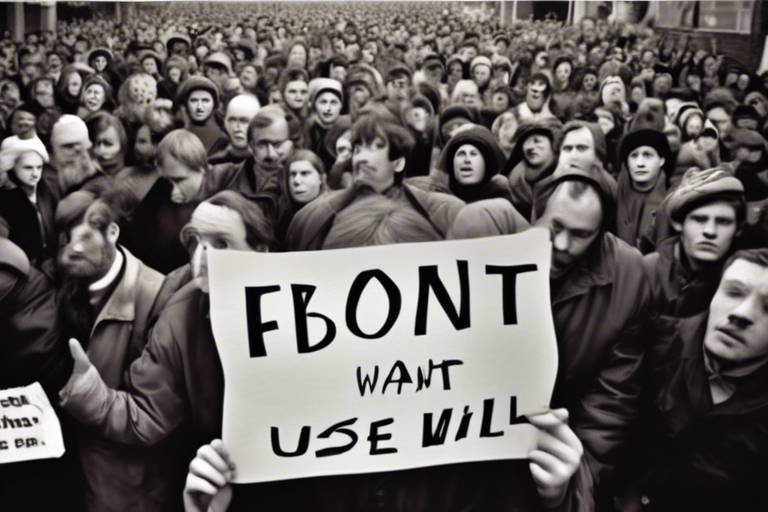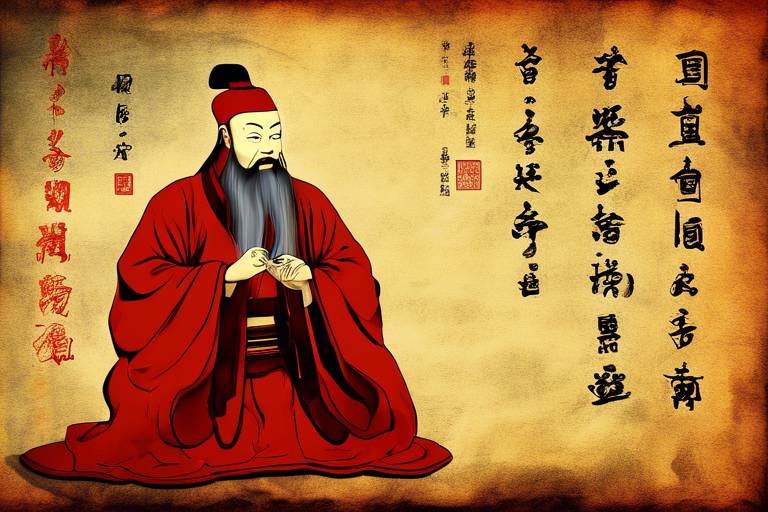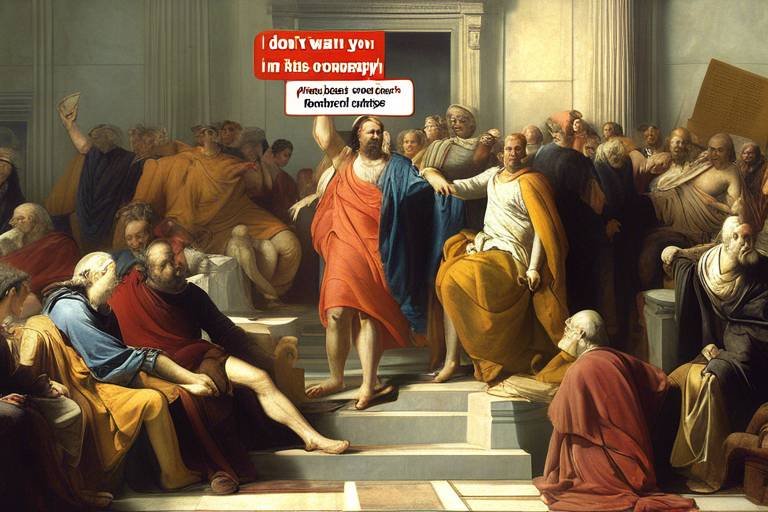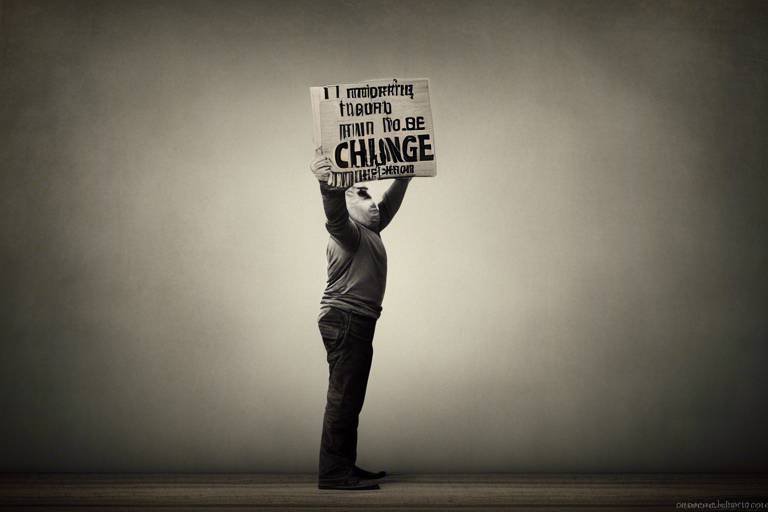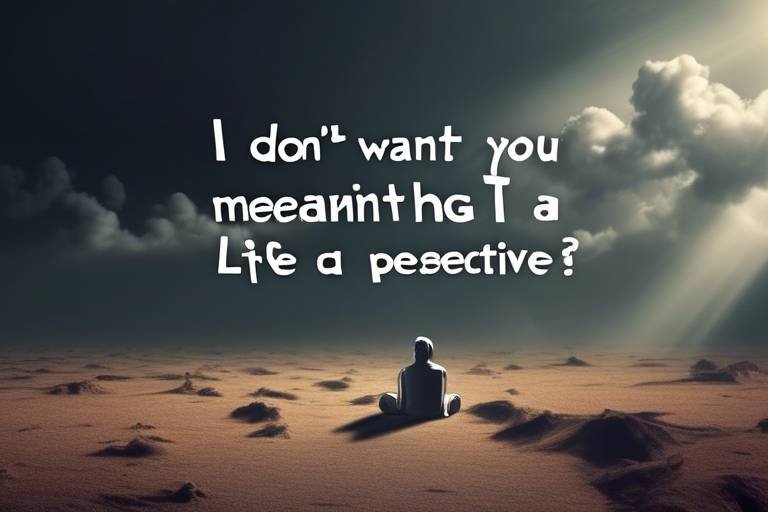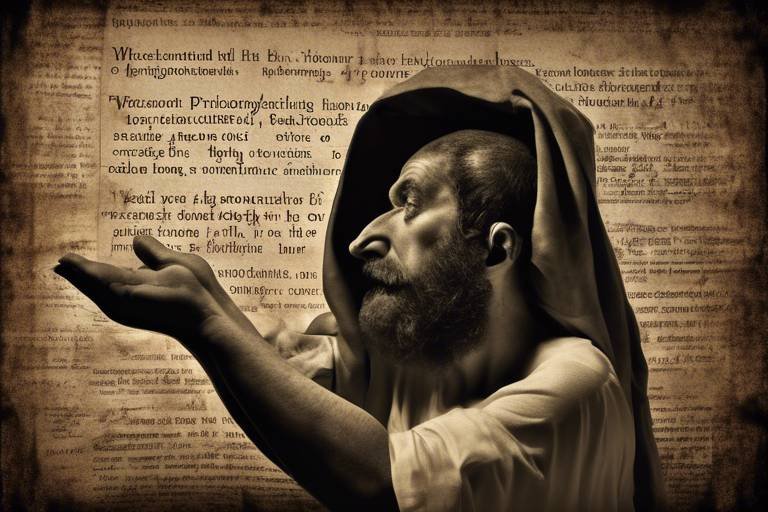The Role of Free Will in Our Lives
Have you ever stopped to think about how much control you really have over your life? The concept of free will is one that has intrigued philosophers, scientists, and everyday people for centuries. It's like the ultimate puzzle: are we the masters of our own fate, or are we simply dancing to the tune of external forces? This article dives deep into the significance of free will, exploring how it shapes our decisions, molds our relationships, and underpins our moral responsibilities. By understanding free will, we can better appreciate the choices we make and the impact they have on our lives and society as a whole.
At its core, free will refers to our ability to make choices without being constrained by external factors. Imagine standing at a crossroads, where each path represents a different decision. Free will is what allows you to choose which road to take, independent of outside influences. Historically, this concept has been debated for centuries, with various perspectives emerging from different philosophical traditions. From ancient Greek philosophers like Aristotle to modern thinkers, the implications of free will touch on our understanding of autonomy and responsibility. It's like a double-edged sword—while it empowers us to make choices, it also places the weight of those choices squarely on our shoulders.
When it comes to free will, the philosophical debate is as rich as it is complex. Think of it as a tug-of-war between three main positions: determinism, libertarianism, and compatibilism. Each of these perspectives offers a unique lens through which we can examine our beliefs about choice and moral accountability.
Determinism posits that every event, including human actions, is determined by preceding events. Picture a row of dominoes falling—once the first one tips over, the rest follow suit in a predictable chain. This view challenges our understanding of free will, suggesting that our choices might not be as free as we think. If everything is predetermined, what does that mean for our sense of personal agency? Are we just puppets on strings, or do we have the power to cut those strings and dance to our own rhythm? The implications for moral responsibility are profound, as it raises questions about accountability for our actions.
On the flip side, libertarianism argues fiercely for the existence of free will, asserting that individuals possess the genuine ability to make choices. It's like being handed the keys to your own car—you're in the driver's seat, and you can steer in any direction you choose. This perspective emphasizes personal autonomy, suggesting that we are not merely products of our environment or biology. However, this raises the question: if we have complete freedom, how do we account for the influences that shape our decisions?
Then we have compatibilism, which attempts to bridge the gap between determinism and free will. Imagine a river flowing through a landscape—while the water follows a determined path, it still has the freedom to swirl and eddy along the way. Compatibilists argue that free will can exist even within a determined universe, suggesting that as long as we act according to our desires and motivations, we can be considered free. This perspective reshapes our understanding of moral responsibility, allowing for a balance between external influences and personal choice.
Psychology also plays a vital role in our understanding of free will, shedding light on how it affects our behavior and decision-making processes. Various studies have explored the intricacies of choice, revealing that our sense of autonomy can significantly impact our mental health and overall well-being. For instance, when individuals feel they have control over their lives, they often experience higher levels of happiness and satisfaction. It's fascinating how the perception of free will can shape our reality, influencing everything from our relationships to our career choices.
The relationship between free will and morality is profound, intertwining our ability to choose with ethical decision-making. When we make choices, we don't just affect ourselves; our actions ripple through society, shaping the world around us. Understanding free will is essential for ethical theories, as it informs our views on moral responsibility. If we believe we have the power to choose, we also bear the consequences of those choices.
Different philosophical views on free will shape our moral responsibilities in distinct ways. For example, if we lean towards determinism, we might argue that individuals are not fully accountable for their actions. Conversely, a libertarian perspective would emphasize personal accountability, suggesting that we are entirely responsible for our choices. This tug-of-war between perspectives raises critical questions about justice, punishment, and rehabilitation in society.
Lastly, our environment significantly influences our ability to exercise free will. Social, cultural, and economic factors can either constrain or enhance our decision-making capabilities. Think of it like a garden—while the seeds of free will are planted within us, the soil, sunlight, and water (representing our environment) determine how well we grow. Recognizing these influences helps us understand the complexities of choice and the importance of creating supportive environments that foster autonomy.
- What is free will? Free will is the ability to make choices unconstrained by external factors.
- Is free will an illusion? This is a debated topic; some argue that our choices are predetermined, while others believe we have genuine agency.
- How does free will relate to morality? Our ability to choose impacts our ethical decision-making and moral responsibilities.
- Can our environment affect our free will? Yes, social, cultural, and economic factors can influence our decision-making abilities.

Understanding Free Will
Free will is a fascinating concept that has intrigued humanity for centuries. At its core, free will refers to the ability to make choices that are not constrained by external factors. This means that individuals can act according to their own desires, intentions, and reasoning, rather than being puppeted by fate or deterministic laws. Imagine standing at a crossroads, where every path represents a different choice; the freedom to choose which path to take is what we refer to as free will. But what does it truly mean to be free in our decision-making?
Historically, the discussion around free will has evolved significantly. Ancient philosophers like Socrates and Plato pondered the nature of choice and moral responsibility, while later thinkers like Immanuel Kant emphasized the importance of autonomy in ethical considerations. In essence, the philosophical implications of free will shape our understanding of autonomy and responsibility. This leads us to consider: if we are truly free, are we also accountable for our actions?
The implications of free will extend beyond philosophical debates. They seep into our daily lives, affecting how we perceive ourselves and our relationships with others. For instance, when we make decisions, we often reflect on whether those choices were made freely or influenced by societal pressures or personal circumstances. This reflection can lead to feelings of empowerment or guilt, depending on the outcome of our choices.
To further illustrate the significance of free will in our lives, consider the following key aspects:
- Autonomy: The ability to govern oneself and make independent choices.
- Moral Responsibility: The expectation that individuals should be held accountable for their actions.
- Influence of Environment: How external factors can either enhance or limit our choices.
In summary, understanding free will is not just an academic exercise; it has real-world implications that impact our sense of self, our moral compass, and our interactions with others. As we delve deeper into this topic, we will uncover how the philosophical debates surrounding free will shape our beliefs about choice and accountability, ultimately influencing our lives in profound ways.
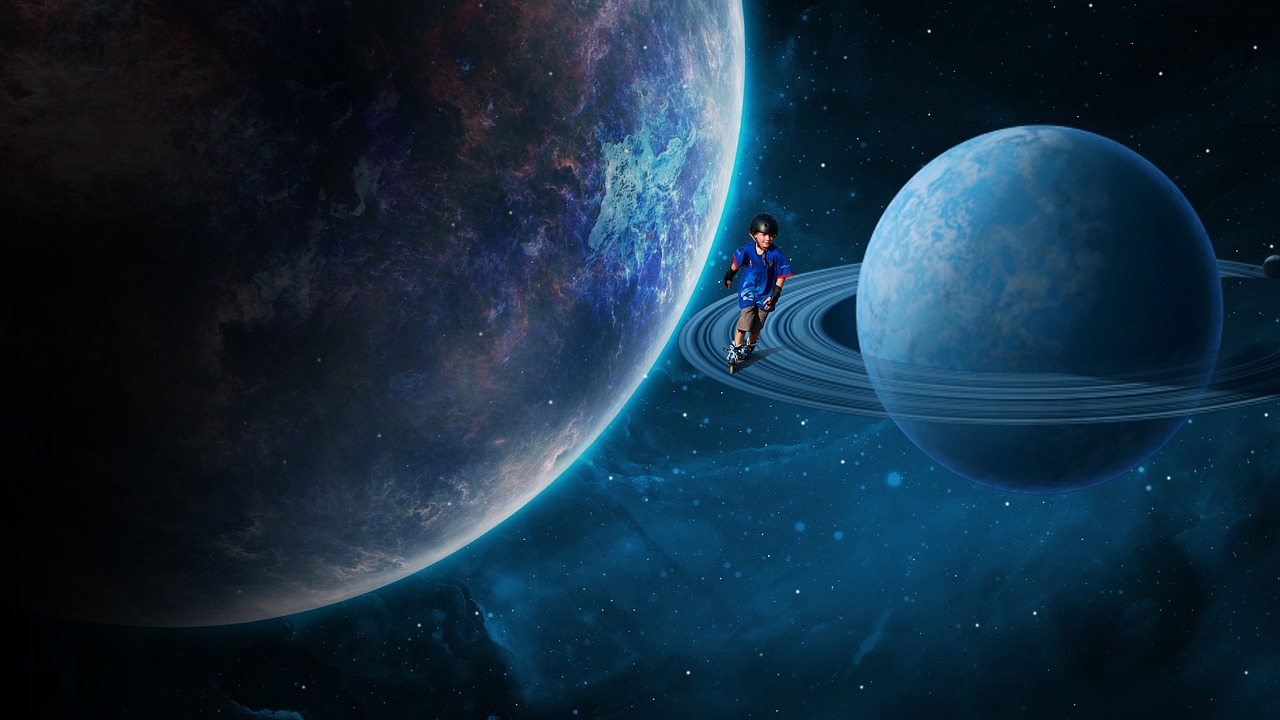
The Philosophical Debate
The concept of free will has sparked intense debate among philosophers for centuries. At its core, the question revolves around whether we truly have the ability to make choices or if our decisions are predetermined by various factors beyond our control. This philosophical inquiry can be divided into three main schools of thought: determinism, libertarianism, and compatibilism. Each perspective offers a unique lens through which we can examine the nature of free will and its implications on our lives.
Determinism posits that every event, including human actions, is the result of preceding events and conditions. Imagine a giant domino effect, where one falling domino inevitably leads to the next. This perspective suggests that our choices are not truly our own but rather the culmination of a series of prior causes. For instance, if a person commits a crime, determinism would argue that their actions were influenced by their upbringing, environment, and even biological factors. This raises profound questions about moral responsibility: if our actions are predetermined, can we truly be held accountable for them?
On the other hand, libertarianism champions the idea that individuals possess genuine free will. Libertarians argue that we are not merely puppets on strings pulled by external forces but rather autonomous agents capable of making independent choices. This perspective emphasizes the importance of personal agency, suggesting that our decisions can shape our destinies. For example, when faced with a moral dilemma, a libertarian would argue that the individual has the power to choose between right and wrong, thus bearing full responsibility for their actions.
Now, what about compatibilism? This view attempts to bridge the gap between determinism and libertarianism. Compatibilists argue that free will can exist even in a determined universe. They propose that as long as our actions align with our desires and intentions, we can still be considered free in our choices. For instance, if a person chooses to donate to charity because they genuinely want to help others, compatibilists would argue that this act is a reflection of their free will, even if their inclination to help was shaped by their upbringing and societal influences.
To further illustrate these philosophical positions, let’s take a look at the following table:
| Philosophical Perspective | Key Belief | Moral Responsibility |
|---|---|---|
| Determinism | All events, including human actions, are predetermined by prior causes. | Limited; accountability is questioned. |
| Libertarianism | Individuals have genuine free will and can make independent choices. | Full; individuals are accountable for their actions. |
| Compatibilism | Free will can exist within a determined framework. | Conditional; responsibility exists if actions align with desires. |
As we navigate this philosophical landscape, it’s essential to recognize how these theories influence our beliefs about choice and moral accountability. Each perspective not only shapes our understanding of free will but also impacts our interactions and judgments in daily life. For example, consider how we respond to someone who makes a poor decision. If we lean towards determinism, we might empathize with their circumstances, while a libertarian viewpoint might lead us to criticize their lack of responsibility.
Ultimately, the philosophical debate surrounding free will is not merely an abstract exercise; it has real-world implications that affect our legal systems, ethical frameworks, and personal relationships. By grappling with these concepts, we can better understand ourselves and the intricate web of choices that define our lives.
- What is free will? Free will is the ability to make choices unconstrained by external factors.
- What are the main philosophical perspectives on free will? The main perspectives are determinism, libertarianism, and compatibilism.
- How does determinism challenge moral responsibility? It suggests that if our actions are predetermined, accountability for those actions may be limited.
- Can free will exist in a determined universe? Yes, compatibilism argues that free will can coexist with determinism.

Determinism vs. Free Will
The debate between determinism and free will has captivated thinkers for centuries, raising profound questions about the nature of human existence. At its core, determinism asserts that every event, including human actions, is the result of preceding events and natural laws. This perspective suggests that our choices are merely the outcomes of a complex web of prior causes, leaving little room for true autonomy. Imagine a giant domino setup: once the first domino falls, each subsequent piece is inevitably knocked down by the one before it. In this analogy, our decisions are like those dominos, falling in a predetermined sequence.
On the flip side, advocates of free will argue that individuals possess the innate ability to make choices that are not entirely dictated by external circumstances. This view posits that we can exercise a degree of control over our actions, akin to a player in a video game who can choose different paths and strategies despite the game’s underlying rules. This notion of free will is not just a philosophical luxury; it has significant implications for how we perceive moral responsibility. If our choices are genuinely our own, then we must be held accountable for them. But if determinism reigns supreme, can we truly blame someone for their actions, or are they just victims of their circumstances?
The clash between these two perspectives raises critical questions about personal agency. For instance, consider the following points:
- Personal Agency: How much control do we actually have over our decisions?
- Moral Responsibility: If our choices are determined, can we be held accountable for our actions?
- Psychological Impact: How does believing in free will or determinism affect our mental health and motivation?
The implications of this debate extend beyond philosophy into our daily lives. For example, if we lean towards determinism, we might adopt a more fatalistic attitude, believing that our efforts to change our circumstances are futile. On the other hand, embracing free will can empower us, encouraging a proactive approach to life where we believe our decisions shape our destiny.
In essence, the tension between determinism and free will invites us to reflect on our own lives. Are we merely products of our environment and past experiences, or do we have the power to shape our futures through conscious choice? This question remains at the heart of the human experience, influencing how we interact with one another and the world around us.

Libertarian Perspectives
When we dive into the realm of libertarianism, we uncover a rich tapestry of thought that champions the idea of free will as a fundamental aspect of human existence. Libertarians argue that individuals are not merely products of their environment or victims of fate; rather, we possess the inherent capacity to make choices that shape our destinies. This perspective stands in stark contrast to deterministic views, which suggest that our actions are merely the outcomes of prior events and conditions. Imagine life as a grand chess game, where every move you make is dictated by previous moves—libertarians reject this notion, asserting instead that we are the masters of our own game.
At the heart of libertarian thought is the belief that free will is not just an illusion, but a vital component of our moral framework. If we accept that we can truly make choices, then we must also accept responsibility for those choices. This leads to a fascinating interplay between freedom and accountability. For instance, if someone chooses to act unethically, libertarians argue that they should be held accountable for their actions because they had the power to choose differently. This perspective fosters a sense of empowerment, encouraging individuals to take ownership of their decisions and their consequences.
One of the key arguments in favor of libertarianism is the idea of moral agency. This concept emphasizes that individuals have the capacity to reflect on their choices and act in accordance with their values and beliefs. When we make decisions, we engage in a process that involves weighing options, considering outcomes, and ultimately choosing a path. This process is what makes us human, and it’s what allows us to navigate the complexities of life. Without the ability to choose, we would be mere automatons, devoid of the richness that comes from making meaningful decisions.
Libertarians also highlight the role of introspection in exercising free will. They argue that self-awareness and the ability to reflect on one’s thoughts and feelings are crucial for making authentic choices. For example, when faced with a moral dilemma, a person might pause to consider their values, the potential impact of their decision, and the motivations behind their choices. This reflective process is what enables true freedom, as it allows individuals to transcend external pressures and societal expectations.
However, the libertarian perspective is not without its critiques. Some argue that the emphasis on individual choice can downplay the significant influence of social, cultural, and economic factors on our decisions. In reality, many of us are constrained by circumstances beyond our control, which can limit our ability to exercise free will. For instance, consider someone born into poverty—while they may have the capacity to make choices, their options may be severely restricted by their environment. This raises important questions about the extent to which free will can truly be exercised in a world filled with inequalities.
In summary, libertarian perspectives on free will offer a compelling argument for the existence of genuine choice and moral responsibility. By emphasizing the importance of moral agency and introspection, libertarians invite us to embrace our capacity for choice and to recognize the profound implications that come with it. While acknowledging the constraints imposed by our surroundings, the libertarian view ultimately champions the idea that we are not merely shaped by external forces, but are active participants in our own lives, capable of steering our own paths.

Compatibilism Explained
Compatibilism is a fascinating philosophical stance that seeks to bridge the gap between free will and determinism. At its core, compatibilism argues that free will can coexist with a deterministic universe, where every event is the result of preceding events. Imagine a well-oiled machine where each gear turns in response to the others; this is similar to how compatibilists view the relationship between determinism and human choice. They contend that while our choices may be influenced by prior causes, we still possess the capacity to make decisions that reflect our desires and intentions.
One of the key aspects of compatibilism is the notion that free will does not require absolute freedom from causation. Instead, it suggests that freedom is about acting in accordance with one's motivations and desires, even if those motivations are shaped by external factors. For example, consider a person who chooses to pursue a career in art. While their passion for art may have been influenced by their upbringing and experiences, the decision to follow that path is still a reflection of their personal desires. Thus, compatibilists would argue that this individual is exercising free will, even within a deterministic framework.
Furthermore, compatibilism emphasizes the importance of moral responsibility. If we accept that our choices can be influenced by prior events yet still reflect our authentic selves, then we can hold individuals accountable for their actions. This aligns with our everyday intuitions about justice and responsibility. For instance, if someone commits a crime, we often consider their intentions and desires when determining their culpability. Compatibilism allows for this nuanced understanding of moral responsibility, as it recognizes that individuals can act freely even when their choices are shaped by external influences.
To illustrate the compatibilist perspective, let's consider a simple table that contrasts determinism and compatibilism:
| Aspect | Determinism | Compatibilism |
|---|---|---|
| Definition | Every event is caused by preceding events. | Free will exists within a determined framework. |
| View on Choice | Choices are illusions; all actions are predetermined. | Choices reflect personal desires and intentions. |
| Moral Responsibility | Individuals are not morally responsible for their actions. | Individuals can be held accountable for their choices. |
In conclusion, compatibilism offers a compelling perspective on the age-old debate between free will and determinism. By asserting that our choices can be both influenced by external factors and reflect our true desires, compatibilism provides a framework for understanding personal agency and moral responsibility. It allows us to navigate the complexities of human behavior while still acknowledging the intricate web of influences that shape our decisions. So, the next time you ponder the nature of your choices, remember that you might just be a compatibilist at heart.
- What is compatibilism? Compatibilism is the philosophical view that free will and determinism can coexist, allowing individuals to make choices influenced by prior causes while still being morally responsible for their actions.
- How does compatibilism differ from determinism? While determinism posits that all events are predetermined and that free will is an illusion, compatibilism argues that individuals can still make choices that reflect their desires, even in a determined universe.
- Can you give an example of compatibilism in action? An example would be someone who, despite being influenced by their upbringing, chooses to pursue a career that aligns with their passions. Their choice reflects their desires, demonstrating free will within a deterministic framework.

The Psychological Aspect
When we talk about free will, it’s not just a philosophical concept; it’s deeply intertwined with our psychology. Imagine standing in front of a vending machine, contemplating whether to grab a candy bar or a healthy snack. Your decision reflects not only your preferences but also your mental state, past experiences, and even the environment around you. This moment, seemingly trivial, showcases how our minds navigate choices and the complex interplay between our thoughts, emotions, and behaviors.
Psychologists have conducted numerous studies to explore how free will influences our decision-making processes. One of the most fascinating findings is that our perception of free will can significantly affect our behavior. For instance, research has shown that individuals who believe they have control over their choices are more likely to take responsibility for their actions. This sense of agency leads to a greater commitment to ethical behavior because when we feel in control, we are more likely to consider the consequences of our actions.
However, the reality is that our ability to exercise free will is often influenced by various psychological factors. Cognitive biases, for example, can skew our decision-making. When faced with choices, we might rely on shortcuts or heuristics, leading us to make decisions that don’t align with our true desires or values. Here are some common cognitive biases that can impact our sense of free will:
- Confirmation Bias: The tendency to favor information that confirms our existing beliefs.
- Anchoring Bias: Relying too heavily on the first piece of information encountered when making decisions.
- Overconfidence Bias: Overestimating our knowledge or ability to predict outcomes.
These biases can limit our perception of free will, making us feel as if our choices are predetermined by our mental shortcuts rather than by our conscious decisions. Moreover, emotional states play a crucial role in decision-making. For instance, when we are stressed or anxious, our ability to make rational choices can diminish, leading us to act impulsively or avoid making decisions altogether.
Additionally, the concept of self-efficacy, which refers to our belief in our ability to succeed in specific situations, significantly impacts our exercise of free will. Individuals with high self-efficacy are more likely to take initiative and pursue goals, believing they can influence their outcomes. In contrast, those with low self-efficacy may feel trapped by circumstances, perceiving their choices as limited.
Understanding these psychological aspects is essential for grasping how free will operates in our daily lives. It’s not just about making choices; it’s about how our minds work, the biases we face, and the emotional landscapes we navigate. Therefore, fostering a sense of agency and improving our decision-making processes can empower us to exercise our free will more effectively.
- What is free will? Free will is the ability to make choices that are not determined by prior causes or external factors.
- How does psychology influence free will? Psychological factors such as cognitive biases, emotional states, and self-efficacy can significantly impact our decision-making and sense of agency.
- Can free will coexist with determinism? Yes, compatibilism suggests that free will can exist even in a determined universe, allowing for moral responsibility.
- Why is understanding free will important? Understanding free will is crucial for making ethical decisions and recognizing the impact of our choices on ourselves and society.

Free Will and Morality
When we think about free will, it's impossible to ignore its deep connection with morality. After all, if we have the freedom to choose, then we also bear the weight of those choices. Imagine standing at a crossroads, where every decision you make isn't just a path to follow but a moral statement about who you are. This is where the interplay between free will and morality becomes fascinating and complex.
At its core, the relationship between free will and morality revolves around the idea that we are not just passive recipients of fate but active participants in shaping our destinies. When we exercise our free will, we are making choices that reflect our values and beliefs. These choices have consequences, not just for ourselves but for the people around us. For instance, if someone chooses to help a stranger in need, that act of kindness can ripple through the community, fostering a culture of compassion.
However, the question arises: what happens when our choices lead to harm? If free will allows us to choose between good and evil, then it also means we must grapple with the moral implications of those choices. This is where ethical theories come into play. Different philosophical perspectives offer various insights into how free will shapes our moral responsibilities:
| Philosophical View | Description |
|---|---|
| Determinism | Suggests that all events, including moral choices, are determined by preceding events. |
| Libertarianism | Argues that individuals have the power to make genuine choices, emphasizing moral accountability. |
| Compatibilism | Proposes that free will and determinism can coexist, allowing for moral responsibility even in a determined universe. |
Moreover, the environment we live in plays a significant role in shaping our moral choices. Factors such as social norms, cultural values, and economic conditions can either empower or constrain our ability to exercise free will. For example, a person raised in a community that values altruism may be more inclined to make ethically sound choices, while someone in a more self-serving environment might struggle with moral dilemmas.
As we navigate through life, our decisions reflect our understanding of right and wrong, and this understanding is often influenced by our experiences and upbringing. The more we engage with our surroundings, the more we refine our moral compass. This leads us to ponder: can we truly be held accountable for our actions if our choices are heavily influenced by external factors?
Ultimately, the relationship between free will and morality is a dynamic dance. It invites us to consider how our choices not only define us as individuals but also shape the fabric of society. Each decision we make is an opportunity to affirm our values and contribute to the greater good. So, the next time you find yourself at a moral crossroads, remember that your free will is not just a gift—it's a responsibility.
- What is the definition of free will? Free will is the ability to make choices that are not constrained by external factors.
- How does free will influence moral responsibility? Free will allows individuals to make choices that reflect their values, leading to moral accountability for those choices.
- Can free will exist in a deterministic universe? Yes, compatibilism suggests that free will can coexist with determinism, allowing for moral responsibility.
- What role does environment play in our moral choices? Our environment can influence our ability to exercise free will, shaping our moral beliefs and decisions.

Ethical Implications
The interplay between free will and morality is a fascinating and complex topic that raises numerous questions about our ethical responsibilities. At its core, the ethical implications of free will revolve around the idea that if we possess the ability to choose, we must also bear the consequences of those choices. This connection between choice and accountability is what underpins many ethical theories, from utilitarianism to deontological ethics.
Consider this: if we are truly free to make our own decisions, then we are also responsible for the outcomes of those decisions. This perspective leads us to grapple with the weight of our actions and the moral fabric of society. For instance, if someone makes a choice to engage in harmful behavior, the ethical question arises—should they be held accountable for their actions, or are they victims of their circumstances? This dilemma is not only philosophical but also practical, influencing laws, social norms, and personal relationships.
To illustrate this further, let’s take a look at some key ethical theories and how they relate to free will:
| Ethical Theory | Relation to Free Will | Key Implication |
|---|---|---|
| Utilitarianism | Assumes individuals make choices to maximize happiness | Encourages consideration of consequences in decision-making |
| Deontological Ethics | Focuses on adherence to rules and duties | Emphasizes moral obligations regardless of outcomes |
| Virtue Ethics | Centers on character and virtues in decision-making | Promotes personal development and moral character |
Each of these theories offers a different lens through which we can examine our choices and their ethical implications. For instance, a utilitarian approach might argue that the ends justify the means, suggesting that if a decision leads to greater overall happiness, it can be deemed ethically acceptable. Conversely, a deontological perspective would argue that some actions are inherently wrong, regardless of their outcomes, thus placing a strong emphasis on the moral duty to choose wisely.
Moreover, the environment plays a crucial role in shaping our ability to exercise free will and make ethical choices. Factors such as culture, education, and socioeconomic status can profoundly influence our decision-making processes. For example, individuals from disadvantaged backgrounds may face significant constraints that limit their choices, raising questions about the fairness of holding them fully accountable for their actions. This brings us to the idea of moral luck, where the circumstances surrounding a person's choices can impact their perceived moral responsibility.
In summary, the ethical implications of free will are vast and multifaceted. As we navigate our lives, we must consider not only our freedom to choose but also the moral weight that accompanies those choices. Understanding this relationship can help us become more conscientious individuals, aware of the impact our decisions have on ourselves and the world around us.
- What is free will? Free will is the ability to make choices that are not determined by external factors, allowing individuals to act according to their own desires and reasoning.
- How does free will relate to morality? Free will is essential for moral responsibility; if individuals can choose their actions, they can also be held accountable for the consequences of those actions.
- What are the main philosophical views on free will? The main views include determinism, which denies free will; libertarianism, which affirms it; and compatibilism, which reconciles free will with determinism.
- Can our environment influence our free will? Yes, various factors such as culture, education, and socioeconomic status can constrain or enhance our ability to make choices.

The Role of Environment
The environment we inhabit plays a crucial role in shaping our ability to exercise free will. Imagine free will as a tree; while the roots are our innate capacities and desires, the soil in which it grows is formed by our surroundings. Just as a tree can flourish or wither depending on the quality of its soil, our decision-making can be profoundly influenced by the social, cultural, and economic factors around us. For instance, consider how someone raised in a nurturing environment with abundant opportunities might feel empowered to make bold choices, while another person from a constrained background may feel limited in their options.
Social influences are particularly significant. The people we surround ourselves with—friends, family, and colleagues—can either encourage us to pursue our dreams or hold us back with their expectations and norms. Peer pressure can be a double-edged sword; it can motivate individuals to strive for greatness or push them into conformity. This dynamic raises an interesting question: to what extent are our choices genuinely our own when they are so heavily influenced by those around us?
Cultural factors also play a pivotal role in shaping our perceptions of free will. Different cultures have varying beliefs about autonomy and individualism. In some societies, collective decision-making is valued over personal choice, which can limit the expression of free will. For example, in cultures where family honor is paramount, individuals may feel pressured to make decisions that align with family expectations rather than their personal desires. This cultural lens can significantly distort our understanding of what it means to have free will.
Moreover, economic conditions can either restrict or expand our choices. Consider someone living in poverty; their options for education, employment, and even basic needs are often limited. In contrast, individuals from affluent backgrounds may have the luxury of exploring multiple paths without the same level of constraint. This disparity raises important ethical questions about the fairness of free will: is it truly free when some people have more opportunities than others?
To illustrate these points, let's take a look at a simple table that outlines how different environmental factors can impact free will:
| Environmental Factor | Influence on Free Will |
|---|---|
| Social Networks | Can either encourage or limit personal choices |
| Cultural Norms | Affect perceptions of autonomy and individualism |
| Economic Status | Determines access to opportunities and resources |
In summary, while we often think of free will as a personal attribute, it is profoundly intertwined with the environment we live in. Our choices are not made in a vacuum; they are influenced by the intricate web of social, cultural, and economic factors surrounding us. Recognizing this interconnectedness can help us understand the complexities of human decision-making and the ethical implications of our actions. So, next time you ponder a choice, consider not just your desires but also the vast landscape of influences that shape your path.
- What is free will?
Free will is the ability to make choices without constraints from external factors. - How does environment influence free will?
Environmental factors like social networks, cultural norms, and economic status can significantly impact our decision-making capabilities. - Can we have free will in a deterministic world?
Yes, some philosophies like compatibilism argue that free will can coexist with determinism. - Are our choices truly our own?
While we have the ability to choose, our decisions are often influenced by our environment and experiences.
Frequently Asked Questions
- What is free will?
Free will is the capacity to make choices without being constrained by external factors. It implies that individuals have the autonomy to decide their actions and shape their own destinies.
- How does free will affect our moral responsibilities?
Free will is crucial for moral responsibility because it suggests that individuals can be held accountable for their choices. If we have the power to choose, we also bear the consequences of those choices, which shapes our ethical considerations.
- What are the main philosophical views on free will?
The primary philosophical perspectives on free will include determinism, which argues that all events are determined by preceding events; libertarianism, which asserts that individuals have genuine freedom to choose; and compatibilism, which seeks to harmonize free will with determinism.
- Can free will exist in a determined universe?
Yes, according to compatibilism, free will can exist even in a determined universe. This view suggests that our choices can still be free if they align with our desires and intentions, despite being influenced by prior events.
- What role does psychology play in understanding free will?
Psychology helps us explore how free will influences our behavior and decision-making processes. It examines the cognitive mechanisms behind choice, along with how external factors like environment and upbringing can impact our perceived autonomy.
- How do social and cultural factors influence free will?
Social and cultural factors can either constrain or enhance our ability to exercise free will. For instance, societal norms and economic conditions can limit choices, while supportive environments can empower individuals to make autonomous decisions.
- Is free will an illusion?
Some argue that free will is an illusion, positing that our choices are heavily influenced by genetics, environment, and past experiences. This view challenges the notion of true autonomy and raises questions about the nature of human agency.
- How does understanding free will impact ethical decision-making?
Understanding free will is vital for ethical decision-making because it underscores the importance of accountability. Recognizing that we have the power to choose can lead to more thoughtful and responsible actions in our personal and societal interactions.

